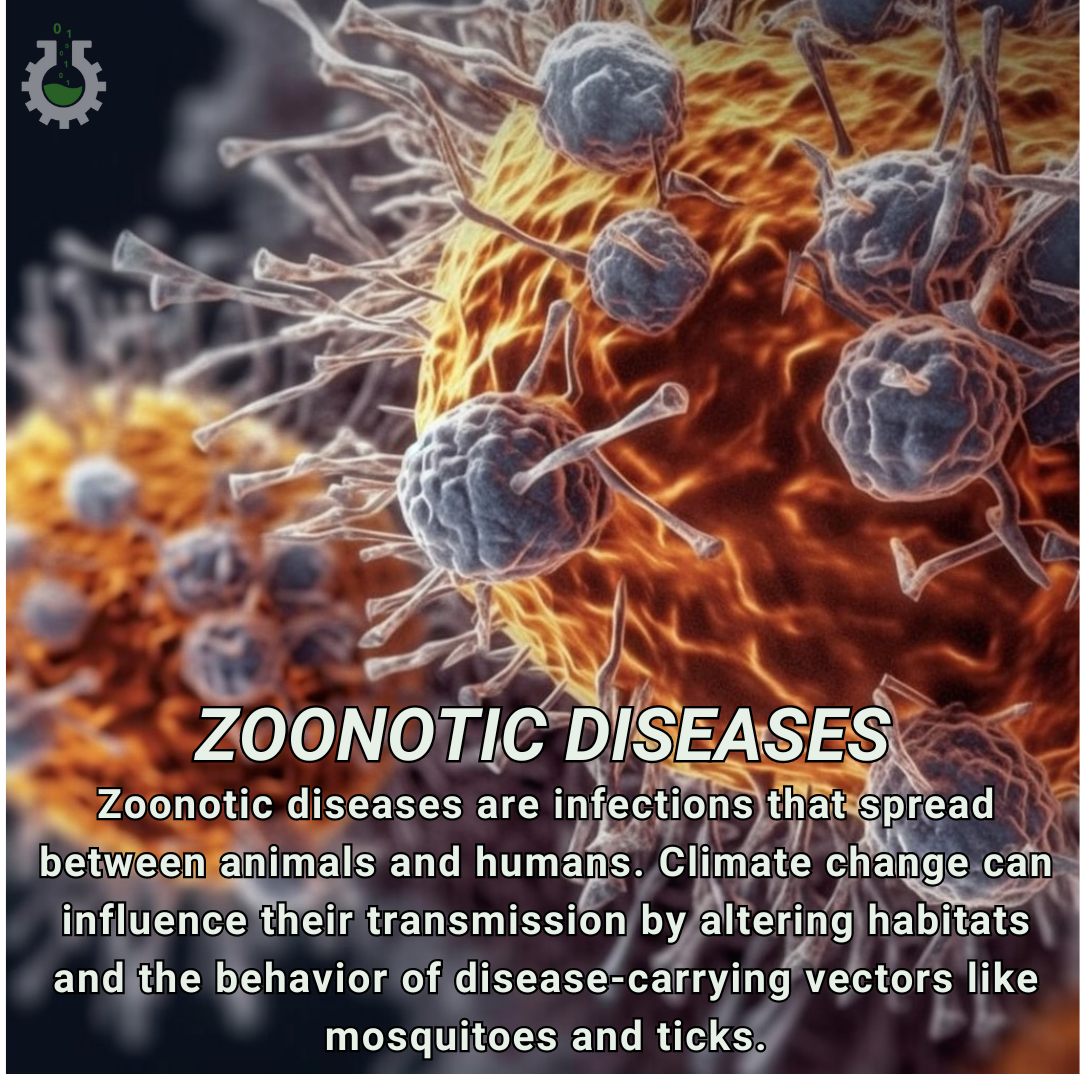April 16, 2024
Climate Change Poster Collection of the Day – Zoonotic Diseases
Book a Demo
Today’s Climate Change Poster Collection highlights Zoonotic diseases, which are infections transmitted from animals to humans, have emerged as a significant public health concern across the globe. These diseases account for a substantial portion of new and existing diseases in humans, with a notable example being the recent COVID-19 pandemic, which has highlighted the devastating impacts zoonotic diseases can have on global health, economies, and societies. The connection between zoonotic diseases and climate change is complex and multifaceted, with climate change acting as a powerful driver that exacerbates the risks and spread of these diseases.
As the planet experiences unprecedented changes in climate, including rising temperatures, altered precipitation patterns, and more extreme weather events, the habitats of many species are being affected. These changes are not only causing wildlife to migrate and come into closer contact with humans but are also altering the distribution and lifecycle of numerous pathogens and their vectors, such as mosquitoes, ticks, and rodents, which are known to carry diseases like Zika, Lyme disease, West Nile virus, and malaria. For instance, warmer temperatures can accelerate the life cycles of pathogens or increase the breeding rates of vectors, thereby enhancing their ability to transmit diseases.
Furthermore, climate change is contributing to more frequent and severe natural disasters, such as floods and hurricanes, which can create ideal conditions for outbreaks of waterborne and vector-borne zoonotic diseases. These events can disrupt ecosystems and human settlements, leading to increased interactions between wildlife, livestock, and humans, and potentially facilitating the spillover of pathogens across species barriers.
Deforestation and changes in land use, often driven by the need to accommodate growing populations and agricultural demands, are another link between climate change and zoonotic diseases. As natural habitats are destroyed or fragmented, wildlife is forced into closer proximity with human communities, increasing the likelihood of disease transmission. Additionally, the stress placed on animal populations by changing environments and reduced habitats can weaken their immune systems, making them more susceptible to infections that could be passed on to humans.
The intricate relationship between zoonotic diseases and climate change underscores the need for a One Health approach, which recognizes the interconnection between human, animal, and environmental health. Addressing the challenges posed by zoonotic diseases in the context of a changing climate requires collaborative efforts across disciplines and sectors, including public health, veterinary medicine, environmental science, and policy-making. By integrating strategies that protect the environment, promote sustainable land use, and enhance surveillance of zoonotic diseases, it is possible to mitigate the impacts of climate change and reduce the risk of future pandemics, safeguarding the health of both the planet and its inhabitants.
Discover an inspiring collection of climate change poster.



